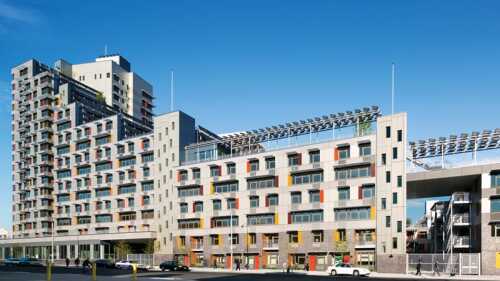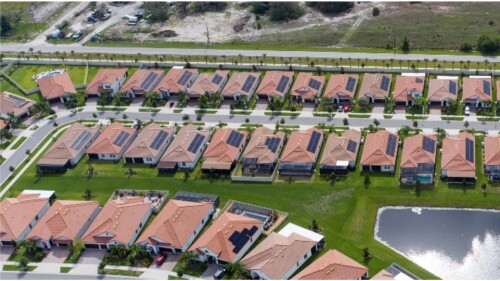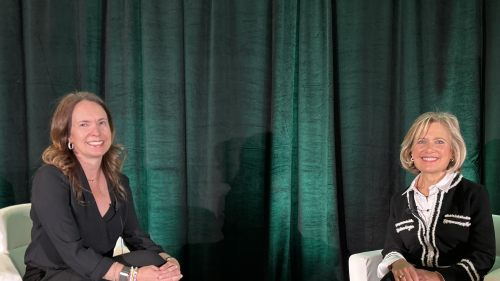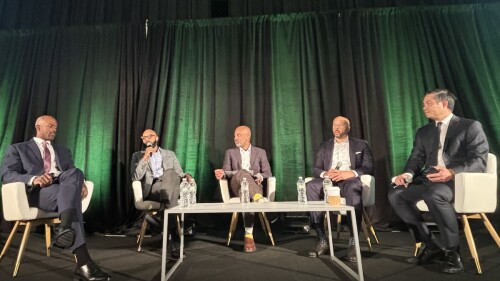A new ULI report, which was launched at the ULI Poland Annual Conference, argues for bold planning and effective reforms to bring Warsaw to life, building upon and renewing the legacy of Stefan Starzyński, who was the city’s mayor from 1934 to 1939. Based on a series of workshops that brought together the city of Warsaw and real estate investors, the Grow with Warsaw report concludes that better cooperation between stakeholders will provide a strong foundation for growth in the city and sets out a series of recommendations based on a city competitiveness framework.
Lisette van Doorn, chief executive officer of ULI Europe, said: “It is tremendously important for cities around the world to think about how they can maintain a competitive edge. The city competitiveness framework that ULI has developed helps to structure that debate to provide a clear set of actions for cities to enact genuine and long-lasting positive change.”
The chair of ULI Poland, Dorota Wysokińska-Kuzdra, highlighted the work that had gone into the report and said: “Through ULI’s unique position as a nonprofit research and education organization supported by its global membership base, we have been honored to have been given the opportunity and to be able to work together with the city of Warsaw and other stakeholders, including private developers and investors, urbanists, and other key players. The discussions during the workgroups showed that an open dialogue between private players and the city of Warsaw was needed and highly appreciated by the participants.”
The report is informed by six Grow with Warsaw workshops that took place in 2018, which were organized in collaboration with the Architecture & Spatial Planning Department and the Economic Development Department (EDD) for the city of Warsaw and involved key decision-makers in the property sector. Each one focused on a different topic: urban revitalization, mixed-use, retail, public space, residential, and city center strategies.
The acting director of the EDD, Piotr Sawicki, said: “The Grow with Warsaw workshops have played an important role in the future planning and development of the city of Warsaw, raising critical issues, identifying opportunities, and promoting a dialogue with the investor and developer community. They have paved the way for joint ventures with private partners including identifying five locations, which will provide possibilities to build approximately 550,000 square meters [5.9 million square feet] of usable space for various purposes.”
The Grow with Warsaw report summarizes the debates at each workshop before outlining recommendations and next steps for Warsaw based on the city competitiveness framework, which is split into four broad pillars: a governance framework, a competitive climate, agglomeration, and attractiveness to talent.
A summary of the report’s key recommendations includes the following:
- A governance framework: Warsaw needs to coordinate funding from developers for regeneration to create the local infrastructure and should support density and mixed use by imposing or amending planning guidance. An opportunity exists to participate in value-capture financing techniques such as tax increment financing (TIF), planning gain supplements, local taxation, and development levies.
- A competitive climate: It is proposed to create a capable interface between the city government and the investment community to speed up processes and partnerships. In working with private investors, the city could support interest through amendments to regulatory or tax environments.
- Agglomeration: Better institutional engagement can support the development of the city, particularly for urban revitalization projects on municipal land.
- Attractiveness to talent: The branding, identity, and livability of the city should be addressed through the revitalization of the retail area and public spaces by reducing traffic in the center of Warsaw in order to build new pedestrian precincts. The city should innovate to attract a different range of companies by transforming properties into multifunctional coworking spaces.
The Grow with Warsaw workshops were supported by a number of Knowledge Partners (BNP Paribas Real Estate, CBRE, Colliers International, Cushman & Wakefield, JLL, Knight Frank, and Savills) and a Legal Partner (Dentons).
ULI members can find this report and more than 150 others on Knowledge Finder.





